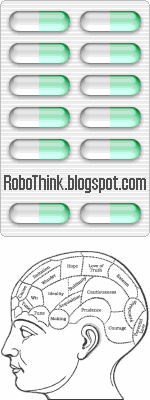Acme Widgets and Human Engineering
The Archives of the History of American Psychology at the University of Akron, Ohio, maintains an apparatus collection which reflects the history of experimental psychology. For certain types of apparatus they have collected a multitude of examples from different sources. To get an idea of what is in the collection, scroll through the list below. Notice how many items would feel at home in the workshops of mechanical, electrical or electronic engineers.

In a review of two books written by academic psychologists -- The Authoritarian Specter and The Politics of Denial -- Dr. R.W. Godwin, a psychologist in private practice in California, had this to say:
A survey conducted by the Autism Research Center at Cambridge University found that experimental psychologists score higher in Autism-Spectrum traits than students in Humanities departments. It's something they have in common with engineers. You can read about it here.
Have you ever wondered why some of the experiments scientists conduct on rats and mice seem so unreasonably cruel? Here's the reason.

In a review of two books written by academic psychologists -- The Authoritarian Specter and The Politics of Denial -- Dr. R.W. Godwin, a psychologist in private practice in California, had this to say:
Nevertheless, the "physics envy" of most university psychologists leads them to commit the category error of studying the interior self like an exterior object, leading them to become either connoisseurs of the obvious (i.e., behaviorists) or champions of the preposterous (feminist "anti-attachment" theorists). If your only tool is a hammer you'll treat everything like a nail, and if your only method is "empirical science," your conclusions are hidden in your method: the self is reduced to just another objective fact, no different than rocks or planets.A recent book by historian Rebecca Lemov, World as Laboratory: Experiments with Mice, Mazes, and Men, tells the story of nearly a century of research into "human engineering." It describes how decades of well-intentioned programs took a sinister turn with the advent of the cold war and the MK-ULTRA project. Funded by the CIA, and using drugs and psychosurgery, scientists turned their attention to interrogation techniques, brainwashing, and influencing behavior by remote-control. An earlier book about the MKULTRA project was based on documents relased under the Freedom of Information Act: The Search for the Manchurian Candidate by John D. Marks. Jobs for psychologists are advertised on the Central Intelligence Agency careers site.
The End of Psychohistory, The Journal of Psychohistory, 25:3, 1998.
A survey conducted by the Autism Research Center at Cambridge University found that experimental psychologists score higher in Autism-Spectrum traits than students in Humanities departments. It's something they have in common with engineers. You can read about it here.
Have you ever wondered why some of the experiments scientists conduct on rats and mice seem so unreasonably cruel? Here's the reason.
